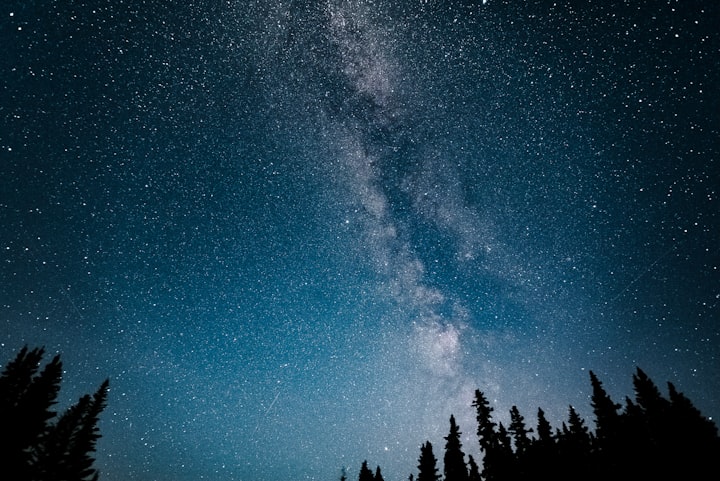
Nobody can hear a scream in the vacuum of space, or so they say. An entirely false saying, by the way. I’m somebody, and my screams filled the helmet of my suit. They still echo in my mind. What would you do if you found yourself floating alone between Jupiter and Mars? You would do exactly what I did, crap your pants and then scream your throat hoarse.
The day started like any other. Awake at 5 am local, roll out of bed, fueled, and ready for First Watch. Back on earth, we call it the day shift. We work twelve-hour shifts, six days a week for two months before we bring our load back home. The trip out and back is 15 to 20 days depending.
One of these days, the Corporation will extend tours to a year with deliveries to Mars. Come to think of it, maybe they already have, if the Corporation still exists. It’s hard to say. Perhaps I should be using the past tense. My mind cannot seem to grasp…
My crew and I checked the ship’s canopy at shift change. The asteroid we buckled up to the previous day hung where we parked it. Mining them is tricky work. The nice thing is they tend to stay where you leave them. There are still plenty of risks to go around. True, our Automatons have taken on the more dangerous aspects, but there are still a few thousand ways to die in space.
Checking the canopy is THE Priority at shift change. The canopy enshrouds most of the rock, catching anything carved, drilled, or escaping as the drills bite deep. Asteroids of the size we were working on had a thin atmosphere; the shroud extended this toward our ship. After twelve hours of work, the canopy fills with minerals, detritus, gas, and unknowns. While Lithium is our primary focus, we find a ton of hydrogen, helium, gold, diamonds, and other precious metals from time to time.
The night had been productive, and Carl’s team had not cleared the canopy. Not a problem; it was a good sign. Amy, Jackson, and I filtered the small amount of gas at the shroud. The analyzer indicated it was a mixture mainly of CO2. We had enough of that stuff on the ship, even with the scrubbers running full time, so we let it escape.
We spent the next fifteen minutes working with the new AI-powered Sorter, weighing and storing the mined material. AI comes pre-educated, but it is always something new to learn. Same as us.
We worked silently. The great silence of space tends to keep talk to a minimum. And the communications gear always adds a tinny sound to our voices, like subliminal nails on a chalkboard. All that nothing either drives you insane or focuses your consciousness like a laser. It sets my teeth on edge.
“Sam?” Amy queried.
“Yes,” I answered, allowing a touch of annoyance in my response.
“What’s going on with A51?”
My gloved hands were carefully working at a chunk of Lithium, levering it out of a metal joint. My visor informed me the purity was high, over 99.999 percent. Maybe we will be able to leave early. One productive asteroid can fill our holds, and this one may be a beaut.
Turning my head and arching my back, I looked down toward the asteroid. A51 stood on the surface, feelers, all six of them, frantically running over the console of the Hardt Lunar Drill. A51 looked vaguely human if you added an arm, removed four tendrils and the third support leg, and increased its visual dome to human size. Then yeah, it would look human if you were blind drunk and met it in a dark alley, which I would not recommend.
Tapping the magnify button with my chin, my visor zeroed in on the panel, recognizing the warning lights; my mouth opened a second too late.
Our ship’s drive is solar-powered with a hydrogen backup. The technology is proven safe, and overloads cannot happen without help. The drill must have hit a large pocket of gas. A heavy gas was leaking slowly that must have filled the lower half of the canopy. There are no sensors, and the gas had to be unknown. I know this because the sensors didn’t pick it up until it was too late. And the flame color generated by the explosion was a kaleidoscope of colors I’ve never seen.
My visor flared as the explosion began at the mouth of the drill site. I saw the brilliant blue spark before the gas caught fire, blowing A51 out of my visual. The flame exploded in color, driving upward into the canopy and the ship.
Jackson floated further down. His back to the unfolding catastrophe. I don’t believe he knew what hit him. Amy uttered something like, “Ack” before the explosion engulfed her. Beneath me, a pocket of gas detonated against the titanium weave tore. I must have been flung through the hole. I do not know.
I awoke spinning in space. My crystallized visor cracked. I tried moving my left arm (I’m a lefty, sue me). It didn’t want to cooperate, maybe it was separated. I couldn’t feel it at all. Not numb, no pain, just nothing; I hoped I still had a left arm. Moving my right slowly, painfully, I reached the controls on my waist. Pushing the release, the visor popped and floated away.
My blurred vision didn’t help. My spinning lessoned from the visor blowback. Just enough, I could focus on my situation. My screaming began and didn’t stop. I had to be nearly ten kilometers away from the belt already. With no way to stop my vector, I was screwed.
I tried working on the problem, but there was no answer. Oxygen, even with the recycler, would give out in ten hours, according to the wrist readout. Even if I eked out a few more hours, to what end? I could see our derelict ship, spinning on a parallel course, at least five clicks away. I had no propulsion, no tether, nothing.
Watching Julia spin is when it hit me. A51, that is. It hit me, taking my breath away. The impact caused my jaw to slam shut, chipping a tooth. Bloody hell, I thought. Then four metallic, ropey-looking tentacles wrapped tightly around me as A51 anchored itself to me.
The Automaton, equipped with emergency propulsion, had captured me, and we were now flying toward our ship. A51 had a rudimentary AI packed into his small cortex. Drilling and monitoring the drill took up only a fraction of its programming. When humans started drilling into asteroids, most deaths were not from explosions but accidents. It’s easy to get launched off a near zero-g asteroid, and once a miner is far enough out, it’s nearly impossible to get them back. Starting with series 3, engineers added propulsion units to retrieve those miners quickly.
A51 found my tracker, which signaled I was alive, and after recovering from the explosion, pursued me. We were heading toward Julia at a fast clip. My excitement and hope grew with each meter. A51 said nothing; it couldn’t, it had no speech capability, but its tendrils tightened as we drew near.
About a kilometer out, we began to turn around. We needed to decelerate. Otherwise, I’d be flattened between the ship and A51. Its thruster stopped. My heart was beating hard as I waited for the deceleration. We needed to start slowing a half a click out. In my mind, I counted down from eight.
When my count reached two, I felt a pop in my left shoulder then I was colder than I had ever been. Now, I realize what happened. The sleeve of my left arm must have torn, leaking out oxygen and allowing the cold of space in. I couldn’t feel my arm frozen from the shoulder on down. Our suits have multiple emergency seals at the shoulders, thigh, and neck. Should any part of the suit fail, each seal closes. Better to lose an arm, a leg, or even a torso than your life.
The pop I felt was the left shoulder seal failing. The escaping oxygen threw us off course again as my suit ultimately failed. All my body heat rushed out, and I went to sleep. For a very long time.
10,000 years later…
About the Creator
Jeffry Parker
Aspiring fiction novelist, I have one non-fiction title to my credit (https://amzn.to/3rUE6Cf) and several short stories, articles, and white papers. My goal is to publish my first fiction novel in 2022/23.






Comments
There are no comments for this story
Be the first to respond and start the conversation.